Q & A with Director Christopher Mattaliano
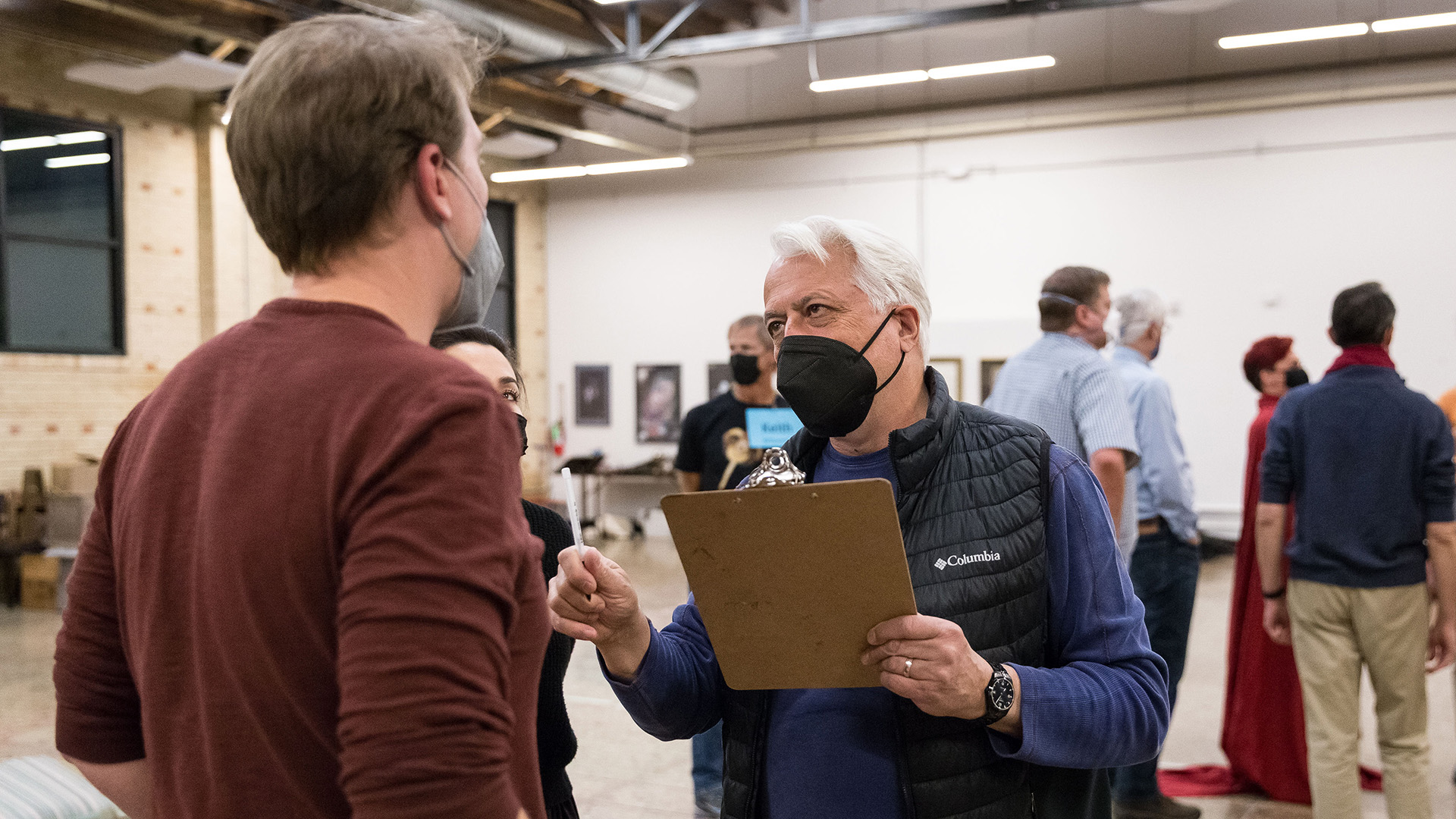
Photo: Opera Colorado/Jamie Kraus
By: Suzanne Whitney
Christopher Mattaliano has worn many hats throughout his career—from stage director, to educator, to artistic director for opera companies and music festivals, to a member of Opera America’s Board of Directors. Throughout all aspects of his career, there is a throughline of thoughtful leadership and a deep commitment to collaboration as a means of creation. Enjoy this opportunity to get to know the stage director of Opera Colorado’s 2022 production of Verdi’s Rigoletto. Learn about his journey to become a stage director of opera, his collaboration with this cast, and even hear how he ended up at Woodstock as a twelve-year-old (yes, that Woodstock).
Tickets to Opera Colorado’s 2022 production of Verdi’s Rigoletto are on sale now.>>
How did you choose to focus your career, time, and artistic sense on opera?
As a kid, I played the French horn for twelve years. I fell in love with music at a very early age. I was lucky in that my parents were big music lovers, although their tastes favored the big band music of the thirties and forties, fifties—Frank Sinatra, Tony Bennett, Duke Ellington, and people like that. However, classical music played in the house every now and then. My dad had three opera recordings, and I fell in love.
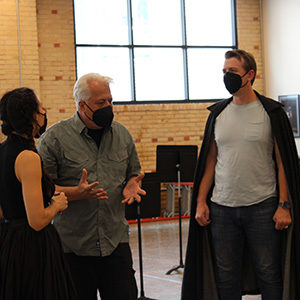
But, I love all kinds of music. As a little detour, I should tell you that one of my claims of fame is that I was actually at Woodstock as a twelve-year-old.
My older sister was dating a guy named Harry, who she eventually married, and he worked for an ice cream company in Central New Jersey. So, this fleet of ice cream trucks was going up to this music festival in upstate New York in the summer of 1969. School was out, and Maria, my sister, at the last minute just asked my parents, “Oh, shall I take the kids with me?” the kids being me and my little brother James. We drove up to Woodstock and believe it or not, I’m actually in the movie! The camera starts panning the crowd while it’s raining and for about five seconds you see me sitting with my sister Maria in the rain.
But getting back to your question, by the time I got to college my interest started shifting more to theater, acting, and directing. So, I eventually got my degree in directing. Then I read a book called Maverick by director Frank Corsaro. Frank was one of the first theater directors that started working in opera in the 1960s and 1970s. I wrote to Frank and asked him if I could meet him. He was very responsive.
It turned out he taught an acting class and directing workshop with opera singers in New York at the time. And so, I ended up taking his class, and he became my mentor. When he found out I had a very strong music background he encouraged me to go into the opera. I assisted him for a number of years on opera productions, and then I eventually built a career of my own.
But it all goes back to my parents having music in the house and my school system in Somerset, New Jersey, having a band class. So, I’m a big advocate for arts and education. I’m a poster child for what it can do for a kid from a blue-collar family.
Since getting your start as a stage director, you’ve worn lots of hats. How have those different roles influenced each other?
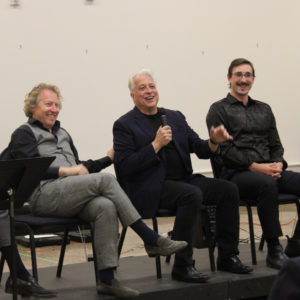
Photo: Opera Colorado/Angelica DiIorio
I think some of the best advice I ever got when I became the artistic director of Pine Mountain Music Festival was to “think about what has made you successful as a stage director and apply that to running a music festival.”
As a stage director, you must adjust your communication with each individual. The way in which you communicate with stagehands and the production team is different from how you communicate with the conductor. You have to speak several different languages in a figurative sense and determine how best to motivate them and get their best work out of them.
I’m also very sympathetic to every arts organization now, whether it’s a symphony orchestra, an art museum, or an opera company. It’s just an incredibly challenging time. I want to do all I can to help an organization succeed. Everything from making sure what we put on stage is the best it can be to speaking at a fundraising event. Because I ran an opera company for many years, I’m particularly conscious of the big picture. You’re putting on an opera, but it’s part of a large organization, and that organization has a relationship to maintain and develop with the general public.
Tell us about your experience teaching, both at universities and young artist programs. Does your educational work feed your work with professional companies?
Boy, that’s another excellent question. I feel very fortunate that my career has been based both in the professional opera world, working with seasoned experienced singers, conductors, directors, and designers, and in the conservatory world, working with very gifted, but green young singers. I do find the two feed each other. After I’ve spent a month teaching, doing master classes, and working with students, I find I can bring the openness, enthusiasm, and energy of the classroom into the professional rehearsal hall. And when I’m working with young singers, I bring knowledge about the profession, and how successful singers behave and advance their careers. I feel very, very fortunate to have a career that’s deeply rooted in both the university world and the professional world.
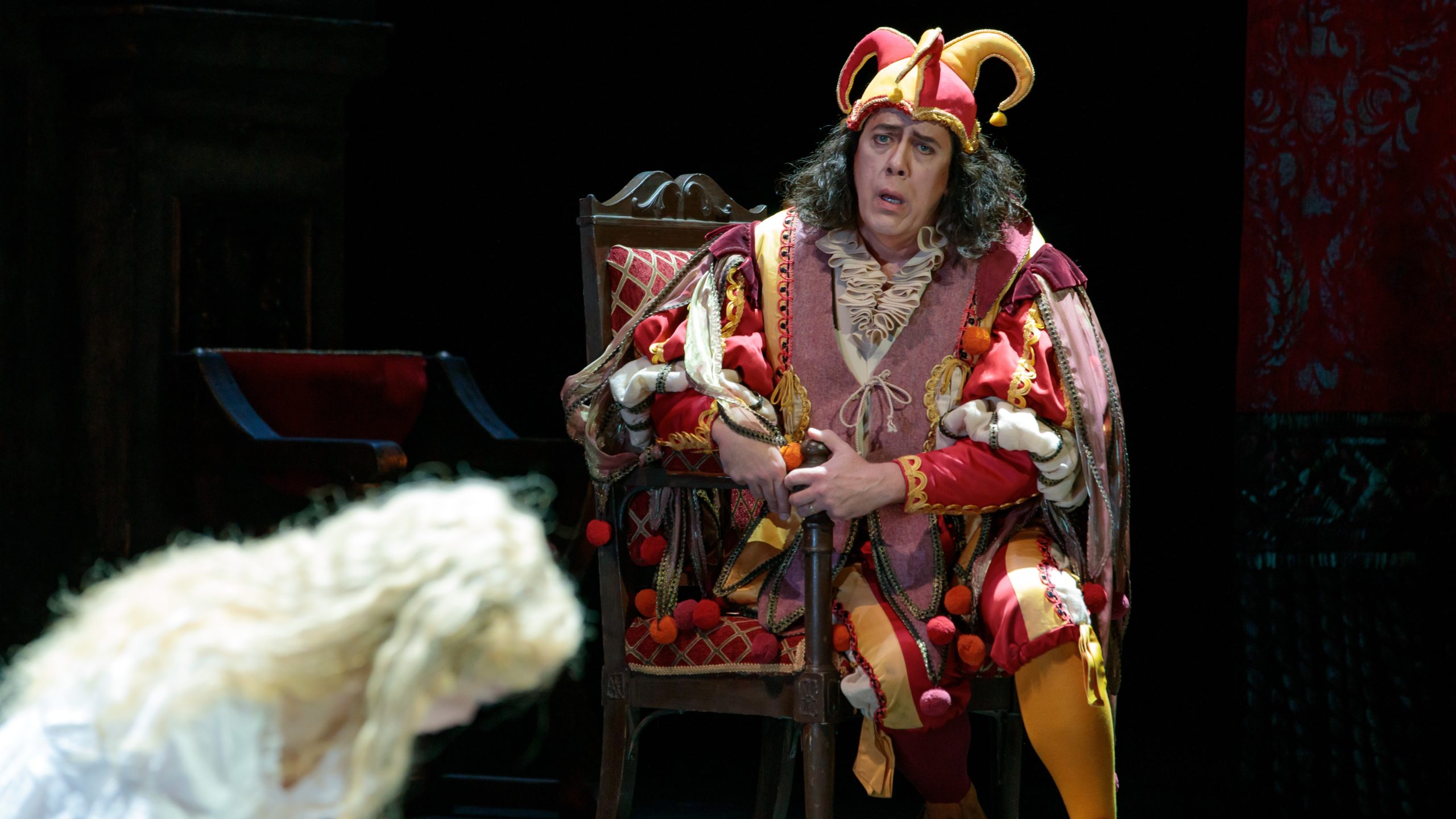
Let’s shift to this production of Verdi’s Rigoletto. Since you’ve directed it before, how does it feel to come back to this opera?
Rigoletto is one of my great loves. I think this is one of the great masterpieces in operatic literature. This is the ninth or tenth production I’ve directed. It’s a little sobering to realize I first directed it in 1988. I had a music history professor in college named Dr. Acker, Jack Acker. He wrote a wonderful book called, The Art of Sound. Dr. Acker used to say, “music is a treasury of the familiar.” I think what he meant by that was the more familiar you become with great works of music, the more they give back, the more nuanced your experience becomes.
I’ve loved this opera for many, many years. It’s one of my favorites to direct because it’s so well put together, and as you become more and more familiar with the work, the more it gives back to you, the more detailed your relationship with it becomes. I said to Ari Pelto, Opera Colorado Music Director, “Gosh, I’m falling in love with this opera all over again, and I’ve done it a hundred times.”
I continue to build upon what I’ve done in the past, but it changes every time because I’m working with a new conductor and a new cast. They each bring their experience to the process, and hopefully, your ideas merge and come up with something special. I always say the best idea wins. Just because I’m the director doesn’t mean that I have the best idea.
It seems like you have a great working relationship with this cast. How did the rehearsal process feel for this production?
At the final room run, I made it a point to go over to Greg Carpenter, The Ellie Caulkins General & Artistic Director, and say thank you so much for providing such an excellent cast. They’ve made my job so much easier. One of my directing teachers in college said that directing is 90% casting—if you cast the right people, they tend to make you look very good. And I would say Greg has done an excellent job of casting this opera, and it’s making me look very good as a director. The singers are so good at their job, and that’s not me. You know, I’m not a modest person, but I’m a very realistic person!
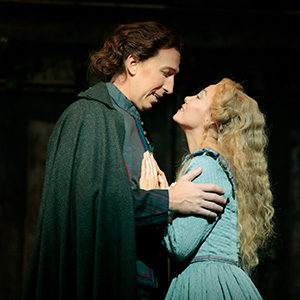
I have five excellent performers in the lead roles. The audience will see a real detailed ensemble production with wonderful chemistry. Chemistry is something that you can’t necessarily direct into a production, but you hope it happens. I try to create an atmosphere where both the soloists and the chorus are willing to take risks and dive in together. That will be reflected in the performance.
This is a traditional production, but traditional in the best sense of the word in that it is very alive and very vital with very high energy. I’m fortunate in having Joshua Dennis as the Duke, and that we’re on the same page in terms of the Duke’s character. It is the Duke’s character that really drives the opera. He’s capable of being quite charming, but he’s also essentially a very dark and troublesome character. I’m happy Josh has been willing to go that route.
I’m also so happy to work with Stephen Powell (Rigoletto) again. He’s done the role many times, and I’ve directed him before in the opera. It’s great to revisit the piece with Stephen and pick up where we left off. I draw upon his experience in the role. I’ve also worked with Christian Zaremba (Sparafucile) before so I can draw up on those former relationships and develop new working relationships, like with Joshua Dennis and Sharleen Joynt. It is exciting to see what they bring to the roles.
You’ve mentioned Rigoletto is one of your favorite operas. Why do you think audiences will love it too?
People always ask if Rigoletto is a good first opera. I think this is an excellent first opera because it flies by. It’s a story everyone can relate to. It feels a little challenging in terms of how women are portrayed, but as someone who has two daughters, the character of the Duke still very much exists in the world. So, this story is very timely in that regard.
I think this is Verdi’s sixteenth opera, he wrote twenty-six in total, so he had been composing for some time. People generally agree that Verdi’s genius comes together with this work—his sense of dramatic timing, his incredible gift for melody, and just his depiction of the complexity of human relationships come together in a very profound and insightful way.
It’s a great work, and everyone knows “La donna è mobile.” The tenor begins to sing it, and people realize, oh, I know this music! I’ve heard this before a thousand times. So, the music will sound familiar to people, whether they’re opera buffs or not.
—
What else would you like to know about director Christopher Mattaliano? Do you agree with him that Rigoletto is Verdi’s masterpiece? Let us know in the comments below!



We were sorry not to hear Joshua as the Duke and hope he is feeling better. The Artist in Residence (tenor) did a superb job singing the part. Why is it that he did not put on the costume and do the whole role?
Thank you.